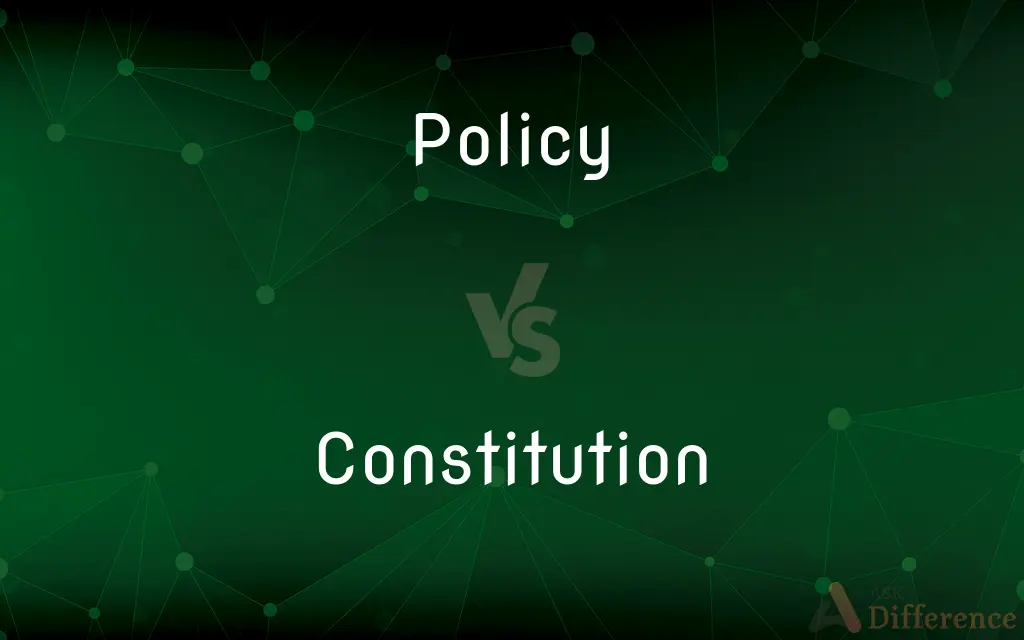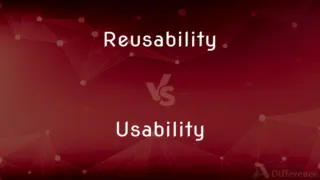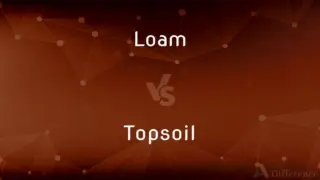Policy vs. Constitution — What's the Difference?
By Tayyaba Rehman & Fiza Rafique — Updated on March 29, 2024
Policy refers to principles that guide decisions, while a constitution is a fundamental legal document outlining a government's structure.

Difference Between Policy and Constitution
Table of Contents
ADVERTISEMENT
Key Differences
Policies are often created by organizations or governmental bodies to direct decisions and actions. They can be specific to a department or cover an entire organization, guiding day-to-day operations. On the other hand, a constitution is a foundational legal document that defines the structure, powers, and principles of a government, providing the legal framework within which policies are developed.
While policies can be relatively easy to change or update, reflecting the evolving needs of an organization or society, constitutions are generally more rigid. Amending a constitution usually requires a complex process, often involving legislative action and, in some cases, a referendum, underscoring its fundamental role in governance.
Policies often address specific issues, such as workplace conduct, environmental regulations, or educational standards. They are practical in nature and designed to achieve specific goals within the framework provided by laws and constitutions. Conversely, constitutions establish the broader legal and institutional framework for governance, including the separation of powers, fundamental rights, and the mechanism for making laws.
The scope of policies is usually limited to the specific area they are designed to influence, and they are enforced by the organizations that create them. In contrast, a constitution has a wider scope, affecting all aspects of governance and society, and is enforced by the nation's courts.
Policies are generally more specialized and can be numerous, covering various aspects of organizational or governmental operations. Constitutions, however, are singular per nation, articulating the foundational principles and structures of the government.
ADVERTISEMENT
Comparison Chart
Definition
A set of guidelines or rules to guide decisions and actions.
The fundamental legal document outlining a government's structure.
Scope
Specific to an organization, department, or issue.
Applies to an entire country or government.
Flexibility
Relatively easy to change or update.
Amending requires a complex process, often rigid.
Purpose
To achieve specific operational goals within an organization.
To establish the legal and institutional framework of governance.
Enforcement
By the organization or body that created it.
By the nation's courts and legal system.
Compare with Definitions
Policy
A statement of intent, setting out one's stance on an issue.
The government's health policy focuses on preventative care.
Constitution
A written document outlining the powers and limits of government.
The Constitution's Bill of Rights protects citizens' freedoms and rights.
Policy
A plan or course of action intended by an organization.
The company's privacy policy ensures customer data protection.
Constitution
A body of fundamental principles according to which a state is acknowledged to be governed.
The U.S. Constitution establishes the country's legislative, executive, and judicial branches.
Policy
Guidelines to influence decision-making.
The school's attendance policy requires students to attend 95% of classes.
Constitution
The supreme law that all other laws must conform to.
Legislation passed by Congress must be in accordance with the Constitution.
Policy
A directive or regulation.
The library's borrowing policy limits how many books can be checked out.
Constitution
The legal framework for political principles, procedures, and powers.
The constitution dictates the process for electing representatives.
Policy
Rules governing the conduct of a group or environment.
The new safety policy mandates wearing helmets on the construction site.
Constitution
A charter that embodies the founding principles of a state or organization.
The organization's constitution defines its aims, membership, and structure.
Policy
Policy is a deliberate system of principles to guide decisions and achieve rational outcomes. A policy is a statement of intent, and is implemented as a procedure or protocol.
Constitution
A constitution is an aggregate of fundamental principles or established precedents that constitute the legal basis of a polity, organisation or other type of entity and commonly determine how that entity is to be governed.When these principles are written down into a single document or set of legal documents, those documents may be said to embody a written constitution; if they are encompassed in a single comprehensive document, it is said to embody a codified constitution. The Constitution of the United Kingdom is a notable example of an uncodified constitution; it is instead written in numerous fundamental Acts of a legislature, court cases or treaties.Constitutions concern different levels of organizations, from sovereign countries to companies and unincorporated associations.
Policy
A course or principle of action adopted or proposed by an organization or individual
It is not company policy to dispense with our older workers
The government's controversial economic policies
Constitution
The act or process of composing, setting up, or establishing.
Policy
A contract of insurance
They took out a joint policy
Constitution
The composition or structure of something; makeup.
Policy
An illegal lottery or numbers game
He swore that he had never played policy in his life
Constitution
The physical makeup of a person
Having a strong constitution, she had no trouble climbing the mountain.
Policy
A plan or course of action, as of a government, political party, or business, intended to influence and determine decisions, actions, and other matters
American foreign policy.
The company's personnel policy.
Constitution
The system of fundamental laws and principles that prescribes the nature, functions, and limits of a government or another institution.
Policy
A course of action, guiding principle, or procedure considered expedient, prudent, or advantageous
Honesty is the best policy.
Constitution
The document in which such a system is recorded.
Policy
Prudence, shrewdness, or sagacity in practical matters
It is never good policy to speak rashly.
Constitution
Constitution The supreme law of the United States, consisting of the document ratified by the original thirteen states (1787-1790) and subsequent amendments.
Policy
A written contract or certificate of insurance.
Constitution
The act, or process of setting something up, or establishing something; the composition or structure of such a thing; its makeup.
Policy
A numbers game.
Constitution
(government) The formal or informal system of primary principles and laws that regulates a government or other institutions.
Policy
A principle of behaviour, conduct etc. thought to be desirable or necessary, especially as formally expressed by a government or other authoritative body.
The Communist Party has a policy of returning power to the workers.
It's company policy that all mobile phones are forbidden in meetings.
Constitution
(law) A legal document describing such a formal system.
Policy
Wise or advantageous conduct; prudence, formerly also with connotations of craftiness.
Constitution
(Catholicism) A document issued by a religious authority serving to promulgate some particular church laws or doctrines.
Policy
Specifically, political shrewdness or (formerly) cunning; statecraft.
Constitution
A person's physical makeup or temperament, especially in respect of robustness.
He has a strong constitution, so he should make a quick recovery from the illness.
Policy
The grounds of a large country house.
Constitution
(dated) The general health of a person.
Policy
(obsolete) The art of governance; political science.
Constitution
The act or process of constituting; the action of enacting, establishing, or appointing; enactment; establishment; formation.
Policy
(obsolete) A state; a polity.
Constitution
The state of being; that form of being, or structure and connection of parts, which constitutes and characterizes a system or body; natural condition; structure; texture; conformation.
The physical constitution of the sun.
Policy
(obsolete) A set political system; civil administration.
Constitution
The aggregate of all one's inherited physical qualities; the aggregate of the vital powers of an individual, with reference to ability to endure hardship, resist disease, etc.; as, a robust constitution.
Our constitutions have never been enfeebled by the vices or luxuries of the old world.
Policy
(obsolete) A trick; a stratagem.
Constitution
The aggregate of mental qualities; temperament.
He defended himself with . . . less passion than was expected from his constitution.
Policy
(obsolete) Motive; object; inducement.
Constitution
The fundamental, organic law or principles of government of men, embodied in written documents, or implied in the institutions and usages of the country or society; also, a written instrument embodying such organic law, and laying down fundamental rules and principles for the conduct of affairs.
Our constitution had begun to exist in times when statesmen were not much accustomed to frame exact definitions.
Policy
(law)
Constitution
An authoritative ordinance, regulation or enactment; especially, one made by a Roman emperor, or one affecting ecclesiastical doctrine or discipline; as, the constitutions of Justinian.
The positive constitutions of our own churches.
A constitution of Valentinian addressed to Olybrius, then prefect of Rome, for the regulation of the conduct of advocates.
Policy
A contract of insurance.
Constitution
Law determining the fundamental political principles of a government
Policy
A document containing or certifying this contract.
Your insurance policy covers fire and theft only.
Constitution
The act of forming something;
The constitution of a PTA group last year
It was the establishment of his reputation
He still remembers the organization of the club
Policy
(obsolete) An illegal daily lottery in late nineteenth and early twentieth century USA on numbers drawn from a lottery wheel (no plural)
Constitution
The way in which someone or something is composed
Policy
A number pool lottery
Constitution
United States 44-gun frigate that was one of the first three naval ships built by the United States; it won brilliant victories over British frigates during the War of 1812 and is without doubt the most famous ship in the history of the United States Navy; it has been rebuilt and is anchored in the Charlestown Navy Yard in Boston
Policy
(transitive) To regulate by laws; to reduce to order.
Policy
Civil polity.
Policy
The settled method by which the government and affairs of a nation are, or may be, administered; a system of public or official administration, as designed to promote the external or internal prosperity of a state.
Policy
The method by which any institution is administered; system of management; course.
Policy
Management or administration based on temporal or material interest, rather than on principles of equity or honor; hence, worldly wisdom; dexterity of management; cunning; stratagem.
Policy
Prudence or wisdom in the management of public and private affairs; wisdom; sagacity; wit.
The very policy of a hostess, finding his purse so far above his clothes, did detect him.
Policy
Motive; object; inducement.
What policy have you to bestow a benefit where it is counted an injury?
Policy
A ticket or warrant for money in the public funds.
Policy
The writing or instrument in which a contract of insurance is embodied; an instrument in writing containing the terms and conditions on which one party engages to indemnify another against loss arising from certain hazards, perils, or risks to which his person or property may be exposed. See Insurance.
Policy
A method of gambling by betting as to what numbers will be drawn in a lottery; as, to play policy.
Policy
To regulate by laws; to reduce to order.
Policy
A line of argument rationalizing the course of action of a government;
They debated the policy or impolicy of the proposed legislation
Policy
A plan of action adopted by an individual or social group;
It was a policy of retribution
A politician keeps changing his policies
Policy
Written contract or certificate of insurance;
You should have read the small print on your policy
Common Curiosities
What is a constitution?
The fundamental legal document outlining the structure, powers, and principles of a government.
Can policies contradict the Constitution?
No, policies must be in alignment with the Constitution, which serves as the supreme law.
What is a policy?
A set of guidelines designed to influence decisions and actions within an organization or government.
What role do citizens play in amending a constitution?
In many countries, citizens may have a role through referendums or electing representatives who decide on amendments.
Can a policy apply to an entire country?
Yes, national policies can be implemented by governments to address country-wide issues.
Can an organization have multiple policies?
Yes, organizations often have multiple policies covering various aspects of their operations.
Who enforces the Constitution?
The Constitution is enforced by the nation's courts and legal system.
How often can policies change?
Policies can be updated or changed relatively easily to reflect new information or objectives.
Why are policies necessary?
They provide guidance and structure for the operation of organizations and governance, aiming to achieve specific goals.
How are policies created?
Policies are developed by organizations or government bodies to guide operations or governance.
What makes a constitution important?
It establishes the foundational legal and institutional framework for a country's governance.
Is a constitution always written?
Most modern constitutions are written documents, but some countries operate under unwritten or partly written constitutional frameworks.
What is the process for changing a constitution?
The process typically involves legislative action and may require a referendum or supermajority vote.
How specific are policies compared to constitutions?
Policies are more specific, addressing particular issues or operational aspects, whereas constitutions provide a broad legal framework.
What happens if a policy violates the constitution?
It can be challenged in court and declared invalid or unconstitutional.
Share Your Discovery

Previous Comparison
Reusability vs. Usability
Next Comparison
Loam vs. TopsoilAuthor Spotlight
Written by
Tayyaba RehmanTayyaba Rehman is a distinguished writer, currently serving as a primary contributor to askdifference.com. As a researcher in semantics and etymology, Tayyaba's passion for the complexity of languages and their distinctions has found a perfect home on the platform. Tayyaba delves into the intricacies of language, distinguishing between commonly confused words and phrases, thereby providing clarity for readers worldwide.
Co-written by
Fiza RafiqueFiza Rafique is a skilled content writer at AskDifference.com, where she meticulously refines and enhances written pieces. Drawing from her vast editorial expertise, Fiza ensures clarity, accuracy, and precision in every article. Passionate about language, she continually seeks to elevate the quality of content for readers worldwide.
















































